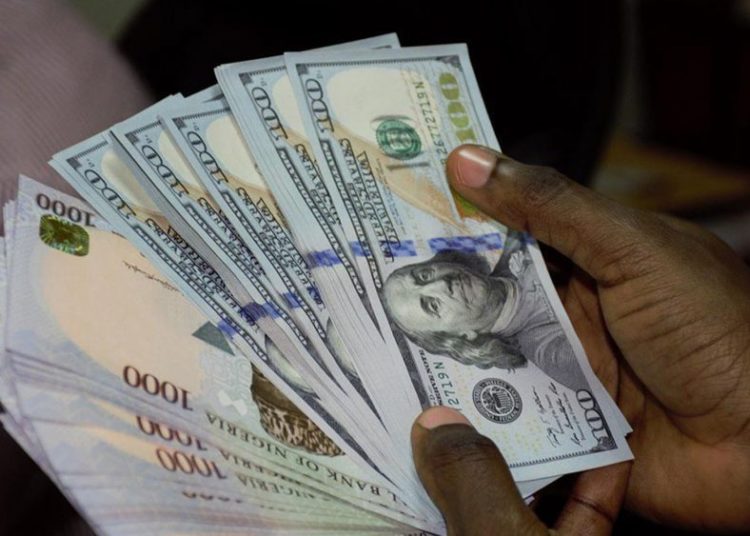The value of the naira dipped at both the parallel market as well as the official market as demand for the greenback surged with the gap between the two windows further widening to as much as over N150.
From N875 which it had been hovering at the parallel market, the value of the naira dropped to N930 at the close of trading on Thursday with the local currency also depreciating at the Nigeria Autonomous Foreign Exchange (NAFEX) market.
Naira Depreciation: Operators Lament As 6 Firms Lose N179.56bn
The local currency had firmed up in the early part of this week trading at around N730 to the dollar at the NAFEX window before further depreciating to N782 to the dollar as at Wednesday which was the most recent data published by the FMDQ. Trades at the market had however sold as high as N800 to the dollar.
Currency traders at the parallel market said the value of the dollar had soared due to increased demand for the greenback. This may not be unassociated with vacationers who travel out of the country for summer holidays as well as a spillover of the increased pressure at the official window from manufacturers and importers.
Liquidity at the official window had waned last month with total inflow dipping significantly by 65.7 per cent month on month. According to data by FMDQ, foreign exchange inflows into the Investors’ and Exporters’ (I&E) end of the market declined from $1.77 billion which was recorded in June to $608.00 million in July, the lowest level since April 2021, when an inflow of $564.20 million was recorded.
Noting that foreign investors remain cautious about returning in their droves despite the forex market liberalisation, as FX backlogs remain uncleared, analysts say, they expect forex liquidity conditions to remain frail in the near term.
Analysts at Cordros Research said they “anticipate weak foreign inflows in the short term, as foreign investors will likely adopt a wait-and-see approach in the near term as they await the CBN’s actions in clearing its forex backlogs and the direction of short-term interest rates amid high inflation.”





